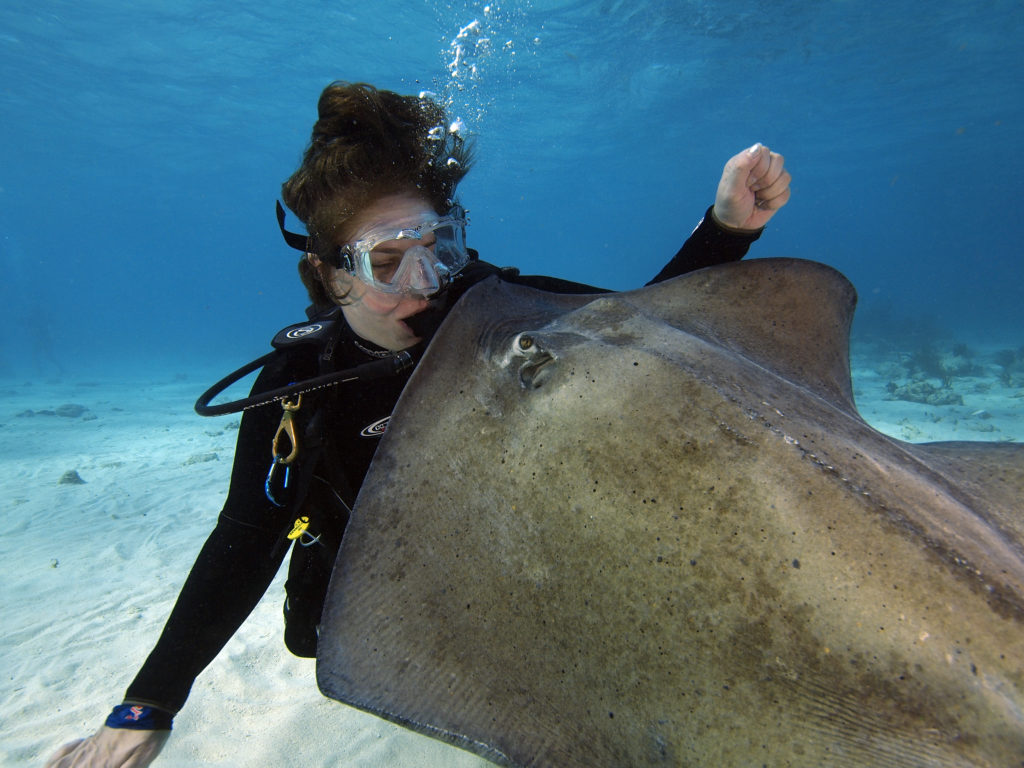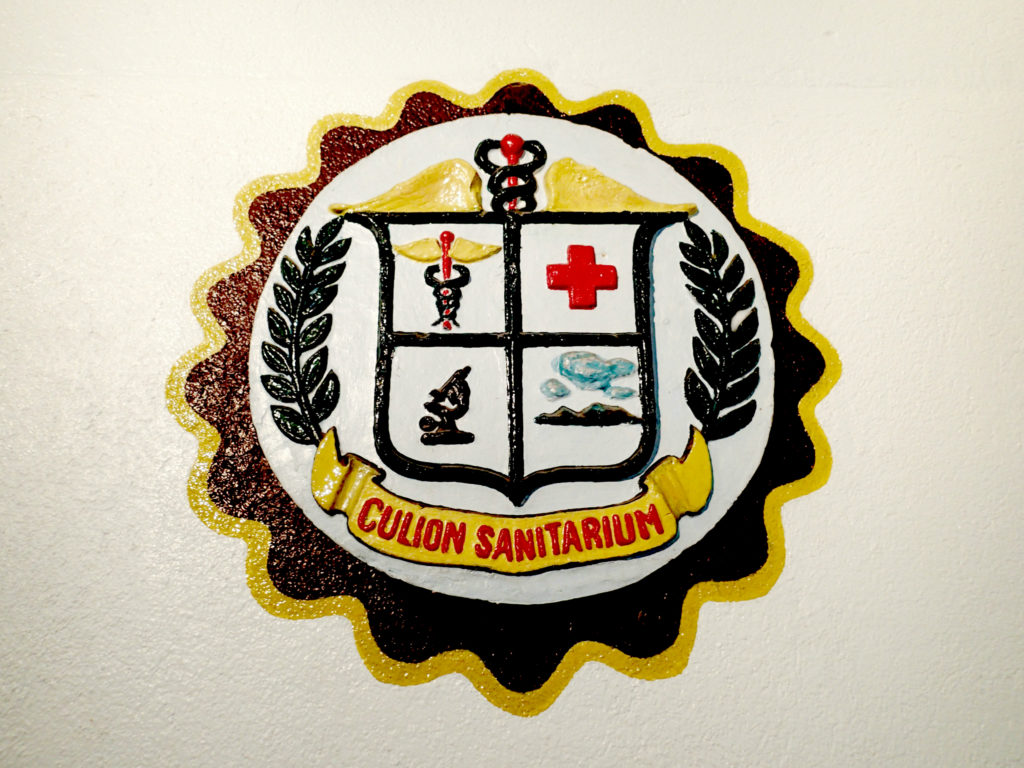As divers, our adventurous spirits often spur travel to exotic dive spots. But things can sometimes go wrong, from problems on the dive boat to poor planning on our part. Avoid these top nine dive travel regrets (of which I have personal experience) and you’ll be much more likely to make every dive a good dive on your next trip.
1. Being left at sea
My best friend and I booked a boat dive with a trusted shop, and headed out in calm seas. Things quickly went south after the boat left us in stormy open water 15 miles from shore for 1-1/2 hours. The anchor line broke while the temporary captain was asleep at the helm. Subsequently he drifted away from our group of 10, along with two divemasters, as a hurricane blew in early. The captain hadn’t marked our location and woke up many miles away. He tried to find us, but couldn’t hear our whistles or see our safety sausages in crashing 6-foot waves. Scared of the consequences, the captain waited too long to contact the dive shop for help. Although he did contact the dive shop and we were rescued, this story could have turned out much differently.
Although a boat probably won’t leave you at sea, it could happen. You may also become separated from your group due to strong currents. In any case, buy a Nautilus Lifeline or Personal Locator Beacon. Or get both, since neither works in every situation.
2. Not doing your research
Before a liveaboard trip in the Maldives, I researched the boat, the flight, the country and the dive shop organizing the trip. Unfortunately, I didn’t research the dive conditions in the area, which included ripping currents as well as down currents. Consequently, when a whirlpool sucked me downward during a safety stop, I was clueless and had to quickly figure out what to do while low on air deep underwater.
This would have been far easier to handle if I had been prepared. Do your research on what to expect underwater before you splash in, from a(vailable medical treatment) to z(oography).
3. Trusting your air to another person
I’ve always gone diving with respected shops. I’ve serviced my gear regularly and tested my air before every dive via a few breaths through my regulator. Imagine my shock when my service guy told me he believed I had been diving with bad air. He saw a massive amount of black soot in my regulator and hose. He explained that he had seen a number of shops with poor compressor maintenance, as well as ones that used maxi pads in lieu of the more expensive air filters.
Don’t trust your precious air to another person. Contaminated gas may not always have an unusual smell or taste, a clear warning that something is off. Buy a combo carbon-monoxide and oxygen analyzer and use it religiously on each tank.
4. Returning to the same location
I loved Barbados on my first visit. So when I had a four-day weekend coming up, another trip to the island made sense. I didn’t need to do any research and just knew the trip would be wonderful. It was a nice trip, but nowhere near as fantastic as the initial visit, simply because it wasn’t a new, exciting location.
Although some will disagree with me, I think returning to the same dive destination over and over is a mistake. Returning somewhere you love is easy, but with so many other incredible dive destinations for you to discover, why limit yourself?

5. Participating in feeding dives
All of my shark-, ray-, grouper- and eel-feeding dives thrilled me. Who wouldn’t want to get a kiss from a stingray as shown in my photo? It wasn’t until my dolphin dive that I became uneasy. The operation billed the dolphins as “semi-wild.” Supposedly, the animals could leave for open ocean if they liked. When the dive was blown out, the shop allowed us to swim with the dolphins in their overnight enclosure.
The pen seemed small to me, but it was the tricks the dolphins performed for food that made me begin to question whether this was ethical. A few years later, I read an article on the horrors of dolphin captivity, citing a former trainer. When I realized she had been the head trainer for the “semi-wild” dolphins I visited, I felt sick. I channeled my revulsion and anger into research on all the different types of dives where food is offered.
Although swimming with captive or semi-captive dolphins is different than feeding wild sharks on dives, I also regret participating in these types of experiences. You’ll meet divers on both sides of the feeding-dive controversy. I used to be a proponent, believing that these dives made people more aware of and interested in marine life. Now, I avoid dives where a trainer offers food. I’ve become convinced that these dives put divers and/or marine life at risk. There are so many dive spots in the world to see cool marine life. I still dive with swirling sharks, pods of dolphins, rays, groupers and eels. The difference now is that none are captive or frenzied by free food, and I have no ethical dilemmas.
6. Remaining with a bad dive shop
I loved the Bahamian dive shop I took my friend to for her Open Water certification dives. At least until they tried to force my newly certified pal to dive very deep on an advanced dive, and then mocked me when I questioned them. I should have found another dive shop for the remainder of the trip, but I didn’t and I still regret it years later.
If you are unhappy with your dive shop or feel they are putting you at risk, change shops — simple as that. Forget about the hassle, the cost and loyalty. Your life and happiness are more important.
7. Blowing every dive for photos
I waited a long time to take my camera underwater. Wanting to perfect my skills first, my 100th dive was my magical entry to underwater photography. I adored it as much as I did on land. Going through my photos after the trip, though, I realized I had spent every single day trying to take the perfect shot and didn’t enjoy the dives as much.
Take some photos to remember the trip. But unless you’re a professional photographer, don’t spend every dive trying to capture a photo you can easily find online. Unplug and just enjoy the dive.

8. Not wearing insect repellent 100 percent of the time
Ever wonder what it’s like to live in another country? I found out when I got a bad case of dengue fever. I had to remain in the Philippines for six weeks at the the Culion Sanitarium Hospital, known for its historical leper colony.
Wear bug spray, all the time — day and night, even if there are few mosquitoes. Mosquitoes bit me only five times, but it only takes once. Trust me, you don’t want to get dengue (or chikungunya, Zika or malaria).
9. Considering separate travel insurance nonessential
A tale of two trips: one to the Philippines where I got dengue fever and another to the Solomon Islands, where my liveaboard broke down. Both dive trips had unforeseen circumstances, but I only had flight and dive insurance during the former trip. On the latter, I also had separate travel insurance. Guess which vacation ended with a fat check from the insurance company, not only covering the entire pre-paid trip, but also ensuring that my continued stay in the area and any extra costs were covered?
Separate travel insurance is expensive, but completely worth it, so don’t skimp up front.

